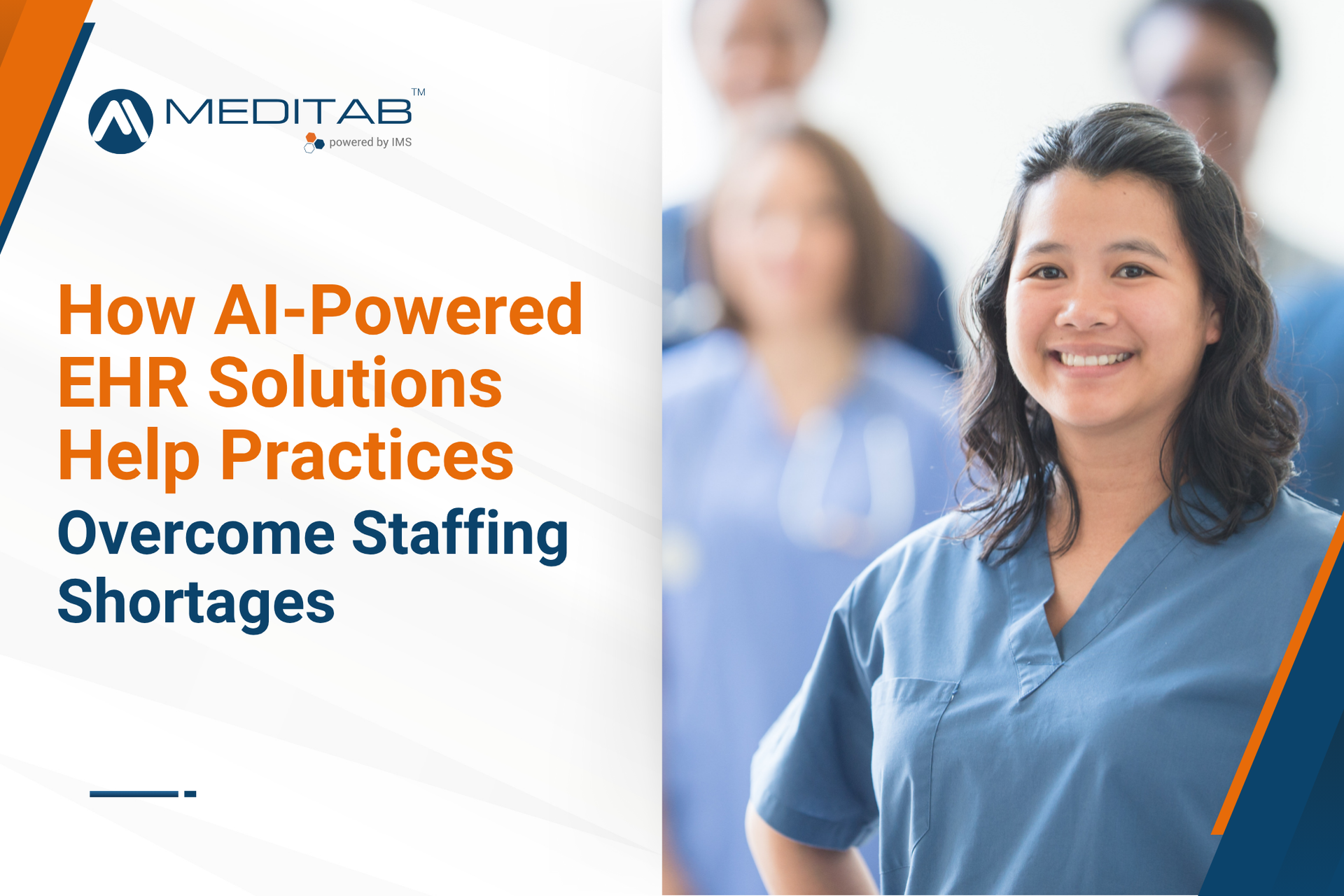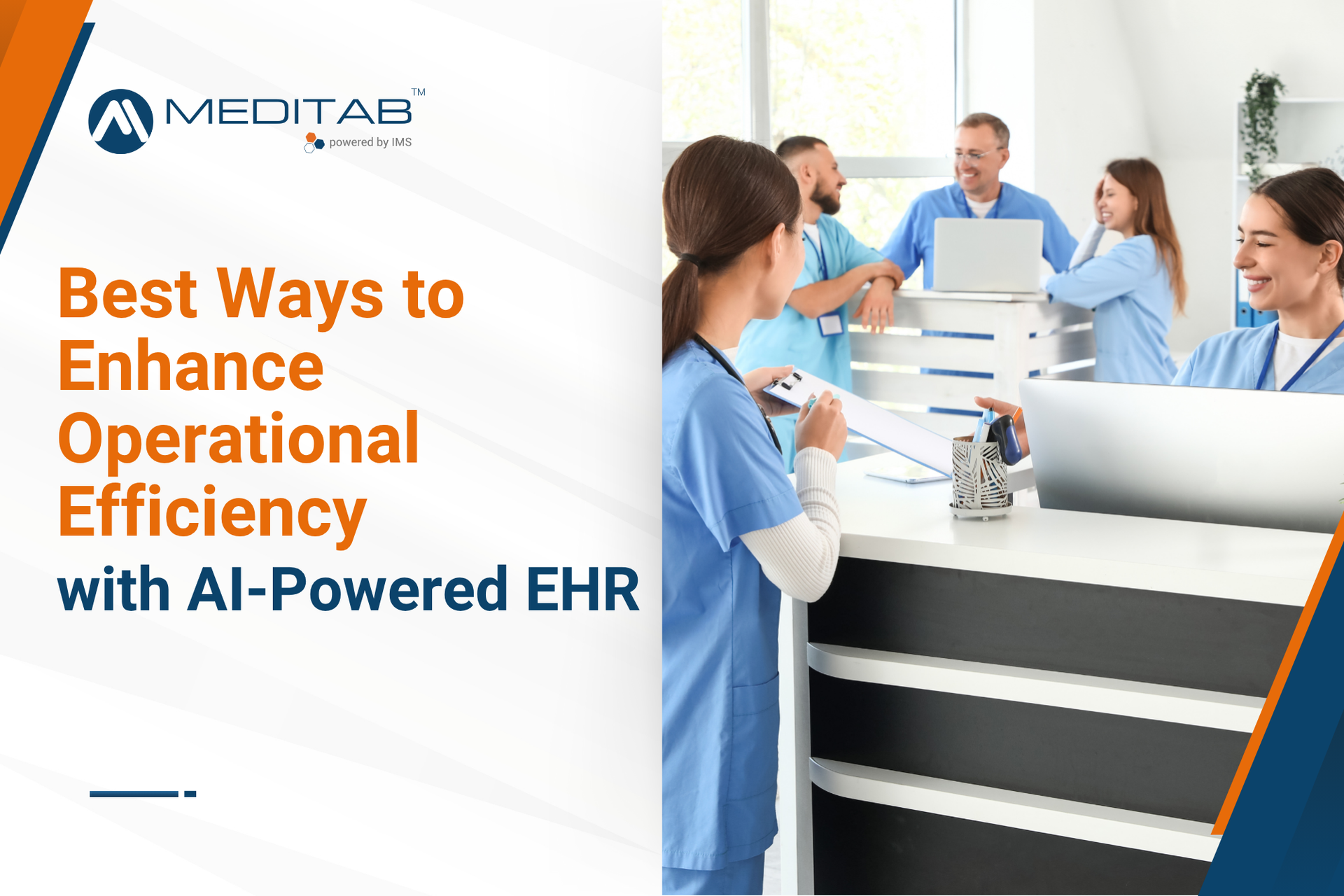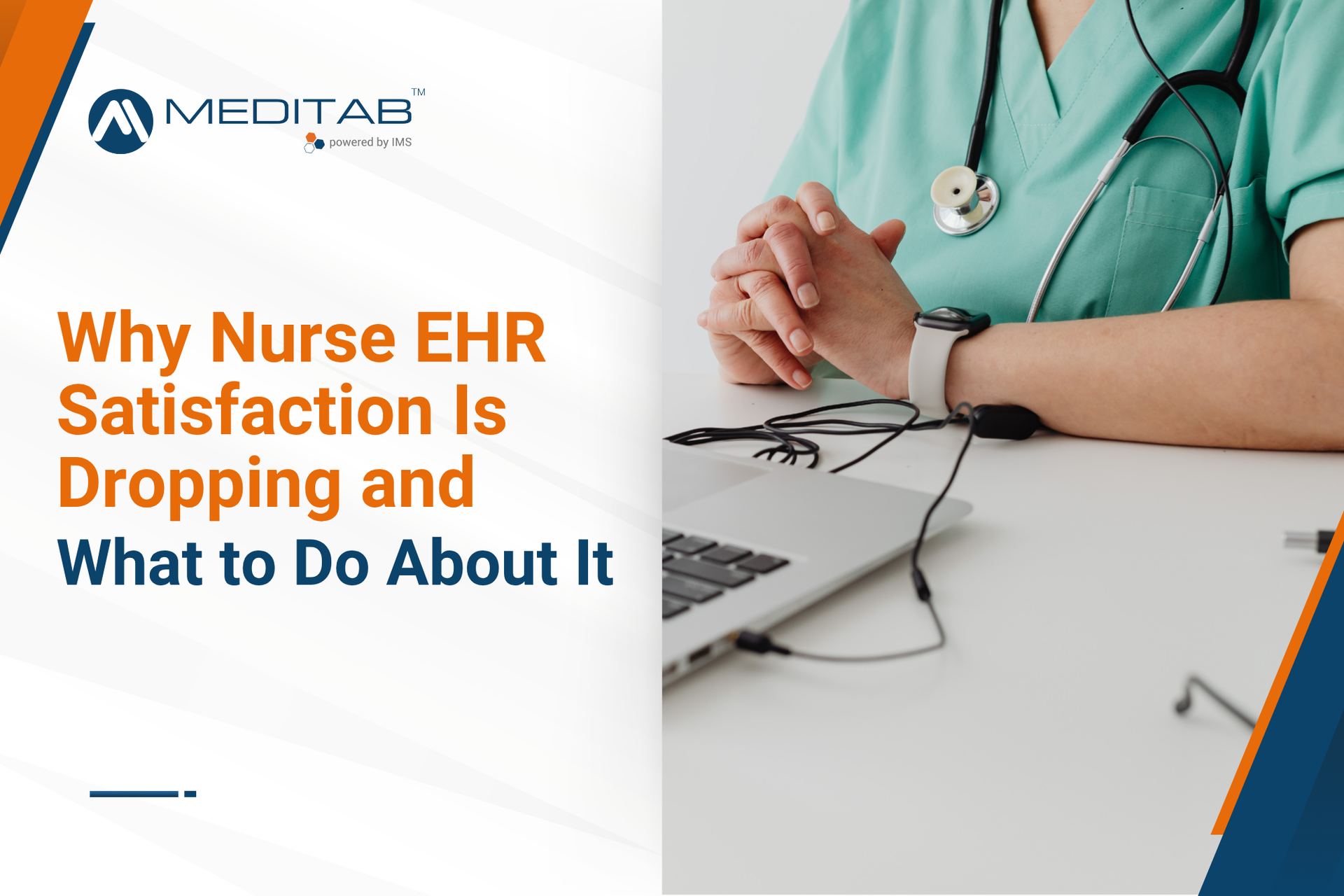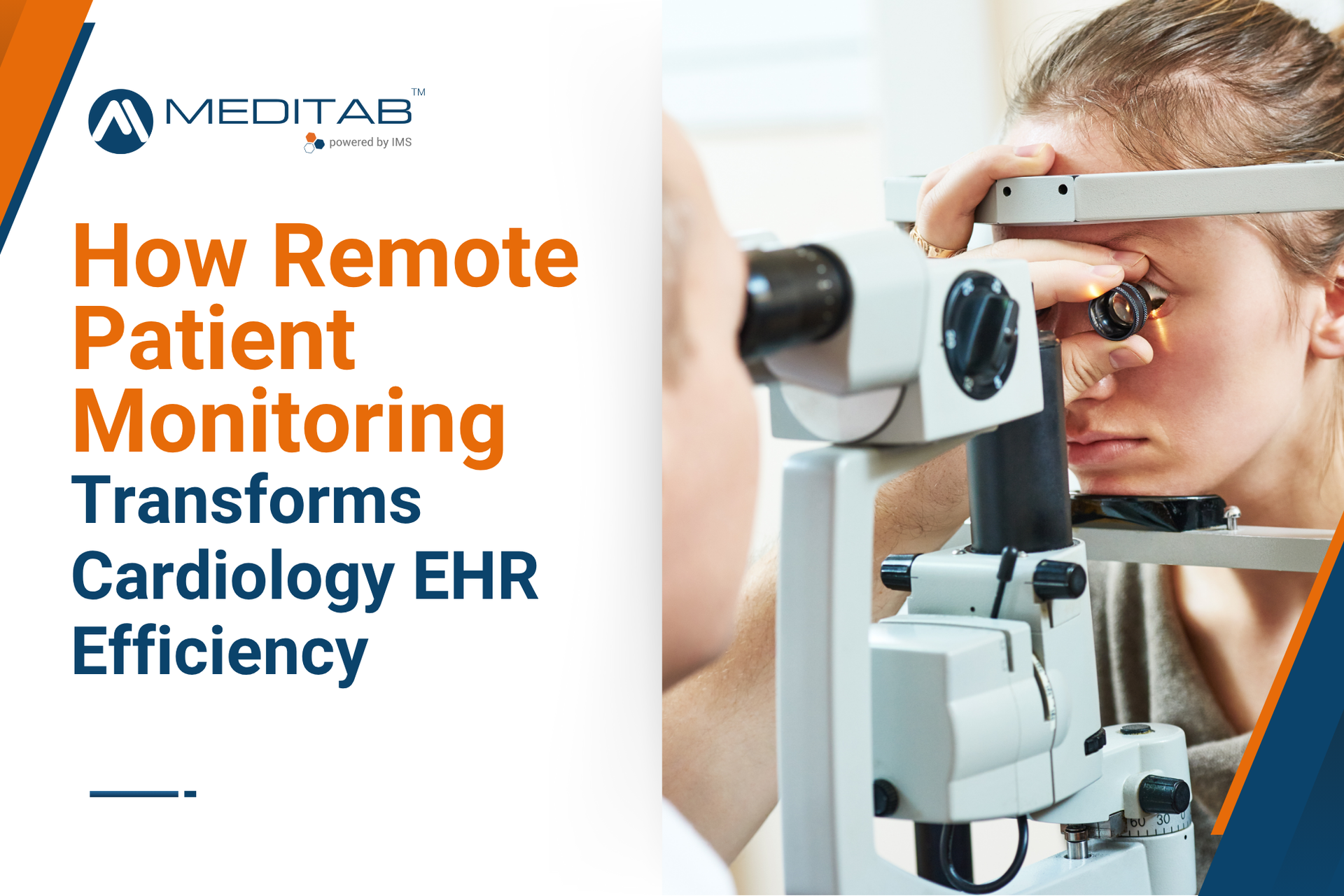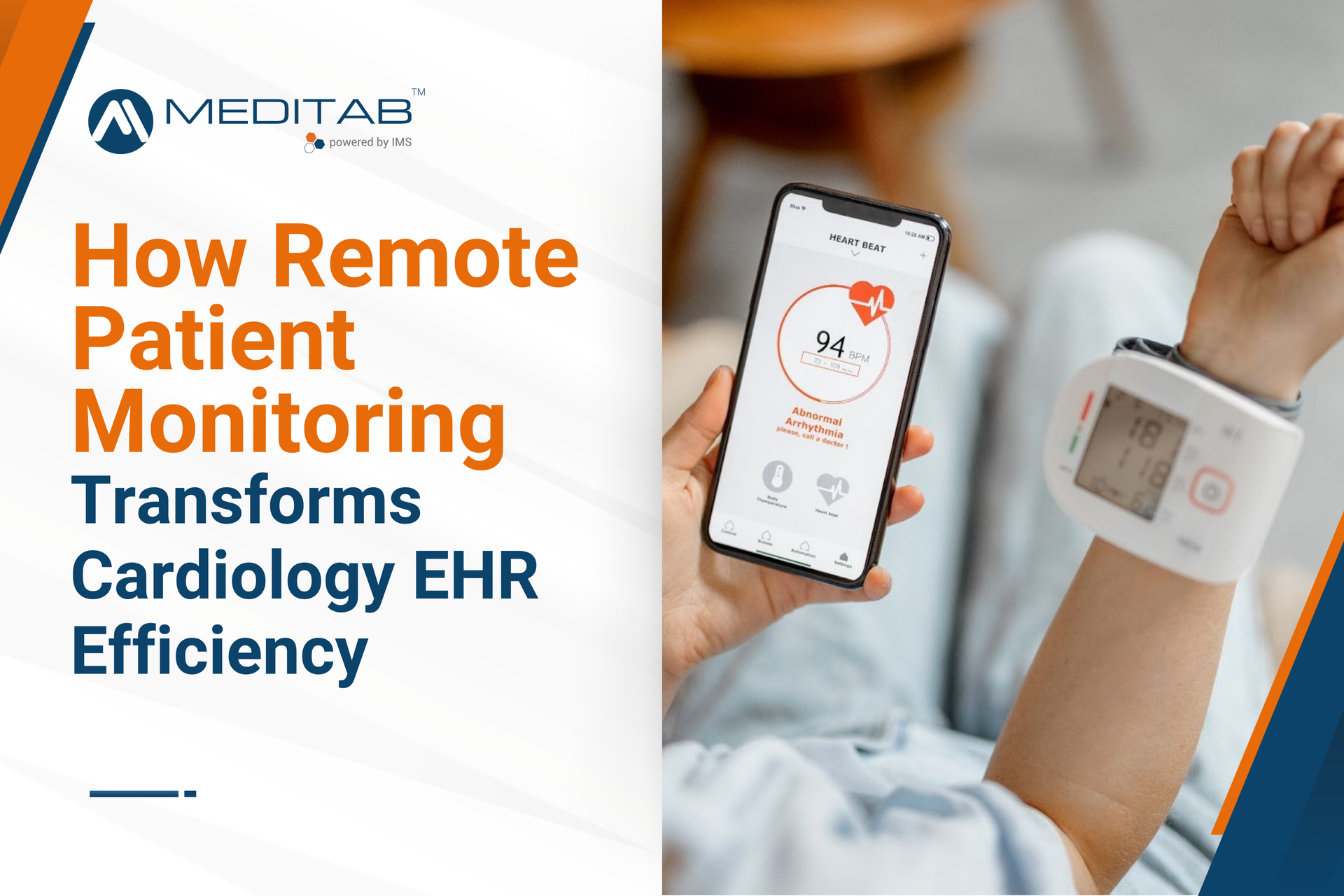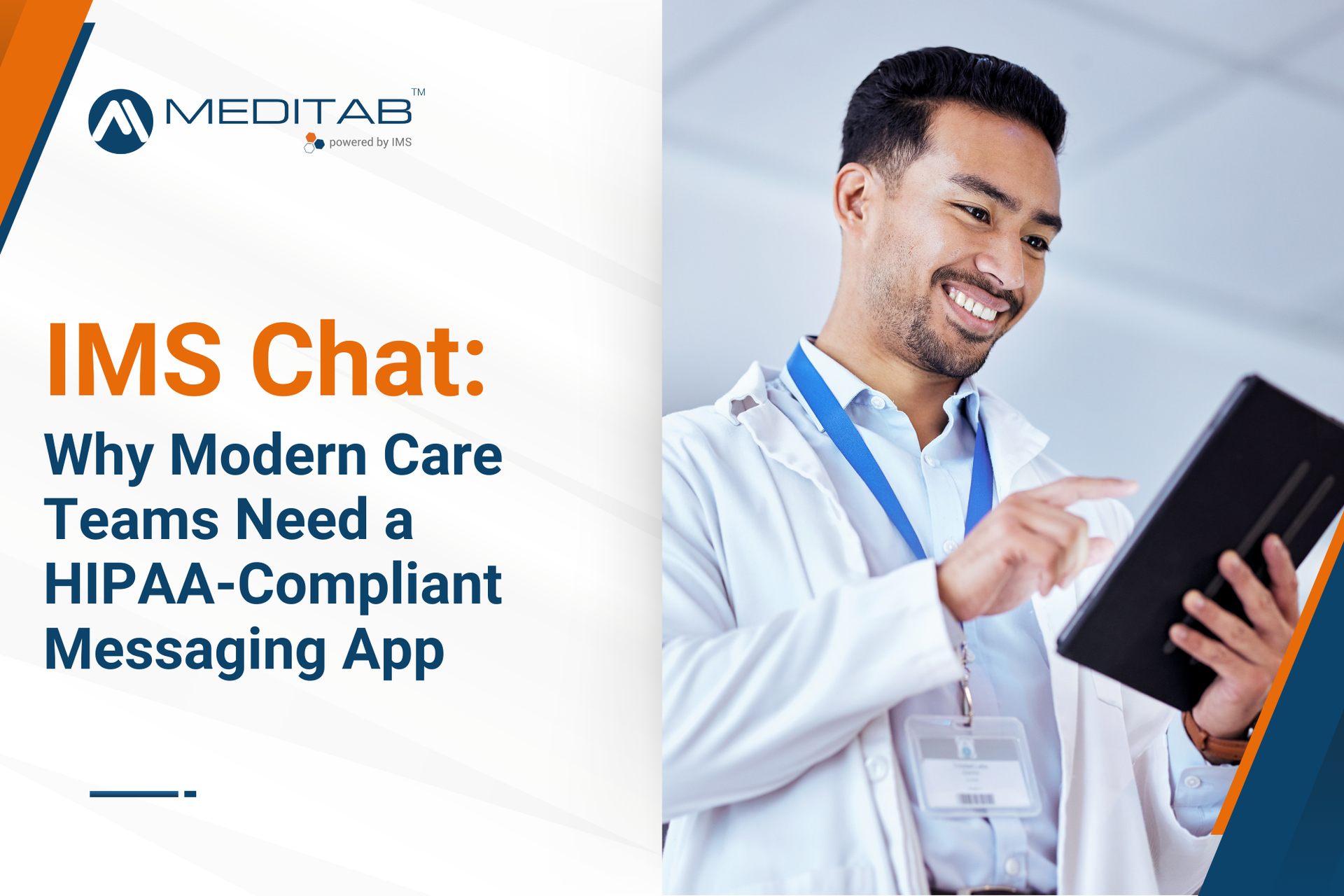Analytics has long been a luxury only large health systems could fully leverage. Now, new platforms are breaking down those barriers, enabling small and independent ambulatory practices to drive meaningful care outcomes with real-time insights in healthcare.
However, the healthcare ecosystem is changing: Incentives tied to quality and outcomes are growing dominant. And the necessary tools that support such time-intensive initiatives are finally catching up.
In this blog, we’ll examine how real-time insights from platforms like
Meditab’s IMS are leveling the playing field for care teams.
Unlock the Power of Data
What Are Real-Time Insights in Healthcare?
Care insights involve the analysis of real-time healthcare data to support more informed decision-making. These insights directly impact
patient outcomes, which measure the effectiveness of care in terms of patient health and overall quality of life.
Further, real-time patient data aren’t just benchmarks—they’re the foundation of today’s value-based care models, including the
Merit-based Incentive Payment System (MIPS).
Types of Patient Outcomes:
- Clinical outcomes:
Tangible health metrics such as survival rates, infection rates, or blood pressure levels.
- Patient-reported outcomes: Subjective feedback, including pain levels, quality of life, and satisfaction.
- Functional outcomes:
How well patients can perform daily tasks like walking or self-care.
- Economic outcomes:
Financial indicators like hospital readmissions, length of stay, and cost-effectiveness.
Why America’s Healthcare Challenges Demand Real-Time Insights
Faced with high stakes, healthcare must continually shift from reactive treatment to proactive patient care. The U.S. invests more in healthcare than any other wealthy nation, yet it struggles with lower life expectancy and
more preventable deaths.
This makes the case for real-time analytics even more urgent. By processing actionable data from their clinical decision support system or other platforms at the point of care, smaller clinics can begin to close the gap, leveraging data to anticipate patient needs and prevent complications before they occur.
The Role of Meditab’s IMS in Delivering Real-Time Insights
Running a busy practice means you don’t have time to dig through reports or wait for end-of-month numbers. Meditab’s Intelligent Medical Software (IMS) gives you the real-time information you need to stay on top of both patient care and practice performance.
Insightful Reporting, Smarter Decisions
Meditab IMS’s comprehensive report module aggregates data from across the system—clinical records, billing, scheduling, and more—to generate customizable, real-time reports. Providers and administrators can instantly identify trends, monitor performance, and track patient outcomes on the fly.
Seamless Referral Coordination, Better Continuity of Care
Meditab IMS tracks and manages referrals with zero delays, demonstrating the benefits of real-time healthcare data in everyday clinical workflows.
As referrals are created, received, or updated, the system logs every step, giving practices complete visibility into referral patterns, statuses, and patient movement across care settings. This enables care teams to optimize workflows and minimize treatment delays, thereby ensuring timely patient care.
Faster Authorizations, Fewer Care Delays
Managing authorizations is time-consuming and can often result in treatment delays. IMS eliminates that friction with real-time tracking, automatically flagging pending or expired authorizations. By accelerating approval workflows, clinics can ensure faster access to necessary care and improve clinical outcomes by reducing avoidable complications.
Effortless Reporting for MIPS and Beyond
An EHR with real-time insights, like Meditab’s IMS, can capture and process patient data through an integrated suite of dashboards and reporting tools.
Within the Meditab IMS system, clinicians use the Visit Note Dashboard to access all essential patient information in one place, while the General Dashboard offers a high-level view of daily operations. The MIPS Dashboard helps practices track quality measures and stay compliant with value-based care requirements.
Enhancing Clinical Decision-Making with Real-Time Data
Most providers are already overwhelmed by clinical duties, EHR requirements, and administrative demands. For
healthcare analytics tools to truly support outcome improvement, the process must be embedded directly into existing workflows.
The result?
What’s Next for Real-Time Insights in Healthcare
As cited, real-time medical data help practices move from reactive care to proactive decision-making. For instance, researchers at the University of Virginia recently used a data dashboard to
predict stomach-related disease outbreaks in low-resource communities and guide early interventions.
Further, predictive healthcare insights help improve care and reduce avoidable hospital visits. One accountable care organization (ACO), Buena Vida y Salud, partnered with a data analytics firm to
catch signs of worsening heart or respiratory conditions before they lead to hospitalization.
At first, too much data made things harder for providers. By re-focusing on specific groups, the care teams gained insights into what drove hospital visits. This change highlights the future of healthcare analytics, where insights fuel better outcomes and cost efficiency.
Ready to Improve Patient Outcomes? Meditab IMS Makes It Simple






